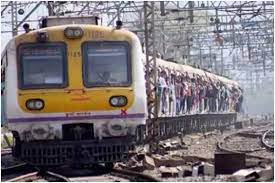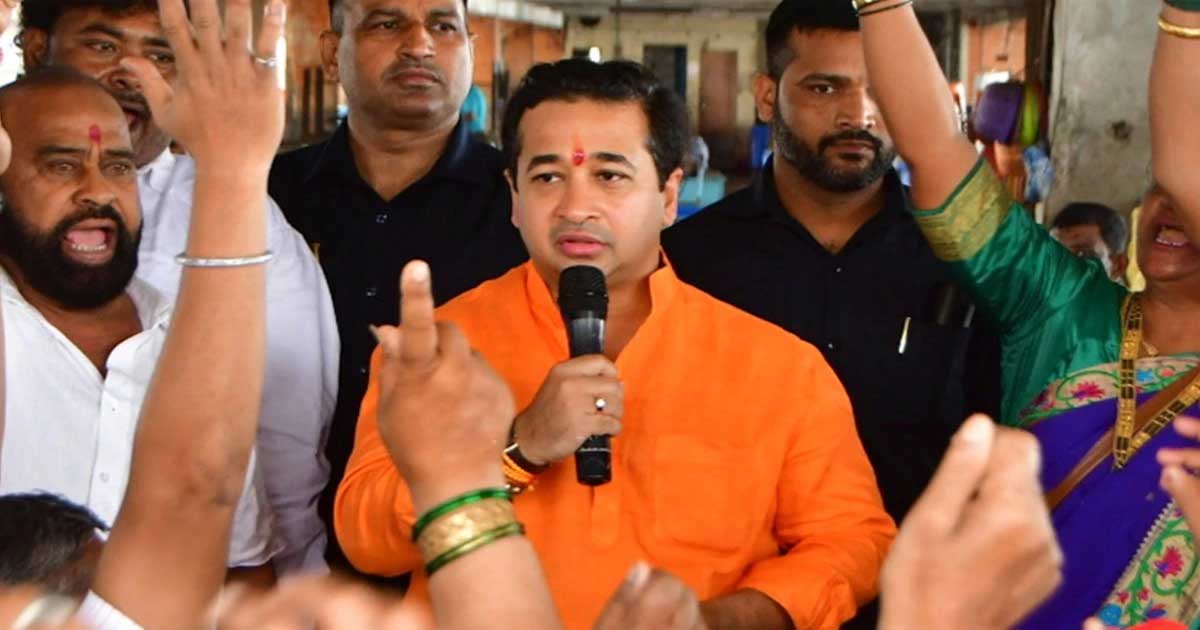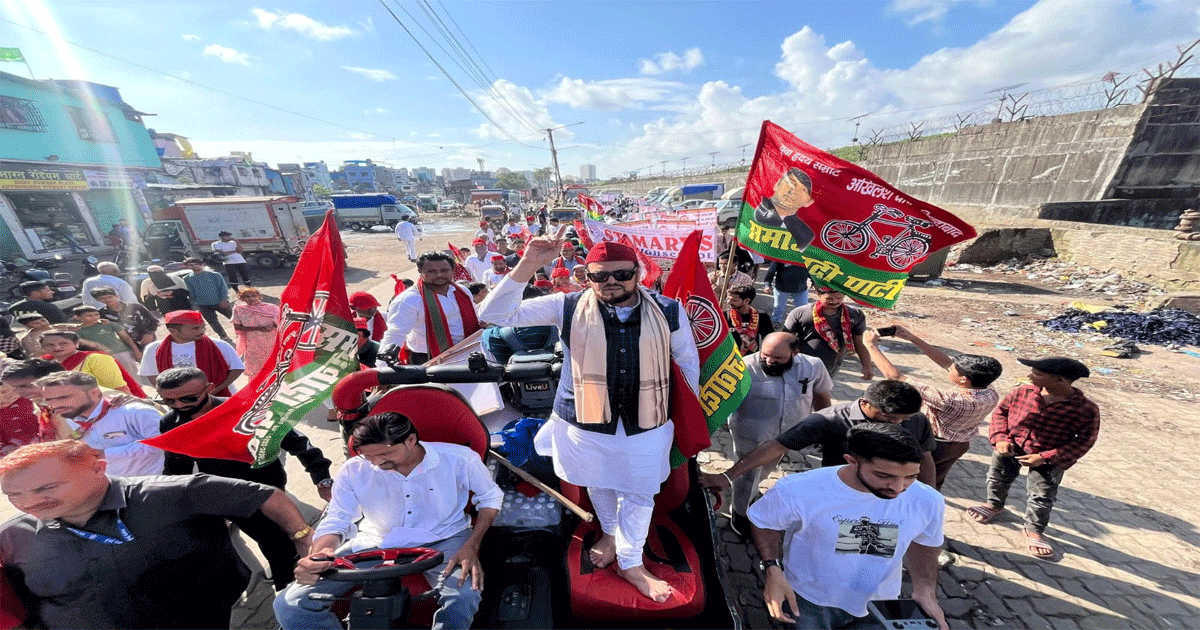General
Central Railway to operate mega block on Sunday for maintenance works

Central Railway, Mumbai Division will operate a mega block on its suburban sections carrying out various engineering and maintenance works on April 16.
Matunga-Mulund Up and Down fast lines from 11.05 am to 3.55 pm
Down fast line services leaving Chhatrapati Shivaji Maharaj Terminus Mumbai from 10.25 am to 3.35 pm will be diverted on Down slow line between Matunga and Mulund stations halting as per their respective scheduled halts and fast trains beyond Thane will be re-diverted on Down fast line, and will arrive destination 15 minutes behind schedule.
Up fast line services leaving Thane from 10.50 am to 3.46 pm will be diverted on Up slow line between Mulund and Matunga halting as per their scheduled halts and will be re-diverted on Up fast line and will arrive destination 15 minutes behind schedule.
Chhatrapati Shivaji Maharaj Terminus-Chunabhatti / Bandra Down harbour line from 11.40 am to 4.40 pm & Chunabhatti / Bandra-Chhatrapati Shivaji Maharaj Terminus Up harbour line from 11.10 am to 4.10 pm
Chhatrapati Shivaji Maharaj Terminus-Chunabhatti / Bandra Down harbour line from 11.40 am to 4.40 pm & Chunabhatti / Bandra-Chhatrapati Shivaji Maharaj Terminus Up harbour line from 11.10 am to 4.10 pm
Down Harbour line services to Vashi /Belapur/Panvel leaving Chhatrapati Shivaji Maharaj Terminus Mumbai/ Vadala Road from 11.16 am to 4.47 pm and Down Harbour line services to Bandra/Goregaon leaving Chhatrapati Shivaji Maharaj Terminus Mumbai from 10.48 am to 4.43 pm will remain suspended.
Up Harbour line services for Chhatrapati Shivaji Maharaj Terminus Mumbai leaving Panvel/Belapur/Vashi from 9.53 am to 3.20 pm and Up Harbour line services for Chhatrapati Shivaji Maharaj Terminus Mumbai leaving Goregaon/ Bandra from 10.45 am to 5.13 pm will remain suspended.
However, special services will run between Panvel and Kurla (Platform No.8) at about 20 minutes frequency during the block period.
Harbour line passengers are permitted to travel via Main Line and Western Railway from 10.00 am to 6.00 pm during block period.
“These maintenance mega blocks are essential for infrastructure upkeep and safety. Passengers are requested to bear with the Railway Administration for the inconvenience caused,” the Central Railway said.
Maharashtra
In the Nawab Malik and Hasinia Parker case, the accused was arrested for cheating in the name of digital arrest

Mumbai: Police have arrested an accused who had deposited Rs 15 lakh in a bank account by threatening to arrest former minister Nawab Malik and Dawood Ibrahim’s sister Haseena Parker in the money laundering case. He had called Delhi Police headquarters and said that there was a money laundering case against the complainant and that his account details had been used in the transactions of Nawab Malik and Haseena Parker, so he needs to be investigated and he is a digital arrestee. The caller had identified himself as DSP Bhupesh Kumar and SP Gopesh Kumar over the phone, after which the police registered a case of fraud. The complainant was also given a fake arrest warrant from the CBI, on which his name was also mentioned, and was instructed to deposit Rs 15 lakh for verification of the funds. This amount was deposited in a Federal Bank account, out of which Rs 5 lakh was transferred to the Bank of Baroda. The details of the accused were found out from the account hold and then the police arrested the accused from Sangli district. He was identified as Vikas Sambhaji Chavan. The accused was arrested and presented in court. A criminal case has also been registered against the accused in Mumbai and Rajasthan. This action was carried out by Joint Police Commissioner Lakshmi Gautam and DCP Parshottam Karad on the instructions of Mumbai Police Commissioner Deven Bharti. The police have appealed that there is no law called digital arrest and the CBI, ED and any agency cannot make digital arrest and no law in the Indian Constitution allows for digital arrest. No, that’s why people should be careful.
Maharashtra
Waris Pathan knows what Nitesh Rane is doing. Nitesh Rane’s threat to Pathan.

Mumbai: Maharashtra BJP leader and minister Nitesh Rane once again spewed venom against Muslims and said that this is not his father’s Pakistan and Karachi but a Hindu Rashtra and a government of Deva Bhau, in such a situation, if anyone tries to disrupt the order and atmosphere, he will be given a response. Nitesh Rane targeted AIMIM national chief Asaduddin Owaisi and said that the place where Owaisi’s rally was held is not Ahmednagar but Ahlia Nagar. The government has changed the names of Ahmednagar and Aurangabad, despite this, people avoid calling Ahmednagar Ahlia Nagar and Aurangabad Chhatrapati Sambhaji Nagar. Such people do not follow the Constitution of India but follow Sharia. He said that if Owaisi tries to disrupt the atmosphere of the state, the government will be forced to consider whether to give him permission to hold a rally or not because he comes here for his political rally.
Threatening Advocate Waris Pathan, Nitesh Rane said that Waris Pathan knows what Nitesh Rane is. He said that Waris Pathan should fix the time and place, Nitesh Rane will definitely come, then we will know what will happen. Nitesh Rane, while showing provocation against Muslims, said that when the idol of our gods and goddesses is desecrated and subjected to violence, where does brotherhood go and where does the Constitution of India go then? He said that if anyone tries to disturb the peace of the state, then he should know that here is the Hindutva Valley government of Devendra Fadnavis.
Maharashtra
Anti-drug rally of Govindi Samajwadi Party leader and MLA Abu Asim Azmi

Mumbai: A massive anti-drug rally was taken out today under the leadership of Samajwadi Party MLA Abu Asim Azmi to draw attention to the serious problem of drug addiction and illegal drug trade in Mankhurd Shivaji Nagar assembly constituency and to create public awareness against it.
Thousands of workers and local citizens participated in the rally. Protesters took to the streets and demanded strict action against the illegal drug trade and appealed to the youth to stay away from drugs.
The main objective of the rally was to free the youth of the area from the clutches of drugs and to put pressure on the administration to stop this illegal trade. Abu Asim Azmi himself led the rally and stressed the need for immediate and strict action against the drug problem in the area. Not only party workers but also a large number of mothers, sisters, young and old citizens of the area participated in the demonstration, highlighting the seriousness of the problem.
The drug problem in Mankhurd Shivaji Nagar constituency has been a topic of discussion for many years and it is badly affecting the lives of local citizens. By organizing this rally, MLA Azmi has once again shown his determination to solve this important problem faced by the citizens of his constituency. Speaking on the occasion, MLA Abu Asim Azmi warned the administration: “Immediate and strict action should be taken against those involved in the illegal drug trade, otherwise the Samajwadi Party and the local citizens will intensify the protest.” The rally proved to be an important rally in drawing attention to the social and health problems of the Mankhurdshivaji Nagar area.
-

 Crime3 years ago
Crime3 years agoClass 10 student jumps to death in Jaipur
-

 Maharashtra1 year ago
Maharashtra1 year agoMumbai Local Train Update: Central Railway’s New Timetable Comes Into Effect; Check Full List Of Revised Timings & Stations
-

 Maharashtra12 months ago
Maharashtra12 months agoMumbai To Go Toll-Free Tonight! Maharashtra Govt Announces Complete Toll Waiver For Light Motor Vehicles At All 5 Entry Points Of City
-

 Maharashtra1 year ago
Maharashtra1 year agoFalse photo of Imtiaz Jaleel’s rally, exposing the fooling conspiracy
-

 National News12 months ago
National News12 months agoMinistry of Railways rolls out Special Drive 4.0 with focus on digitisation, cleanliness, inclusiveness and grievance redressal
-

 Maharashtra11 months ago
Maharashtra11 months agoMaharashtra Elections 2024: Mumbai Metro & BEST Services Extended Till Midnight On Voting Day
-

 National News1 year ago
National News1 year agoJ&K: 4 Jawans Killed, 28 Injured After Bus Carrying BSF Personnel For Poll Duty Falls Into Gorge In Budgam; Terrifying Visuals Surface
-

 Crime12 months ago
Crime12 months agoBaba Siddique Murder: Mumbai Police Unable To Get Lawrence Bishnoi Custody Due To Home Ministry Order, Says Report












